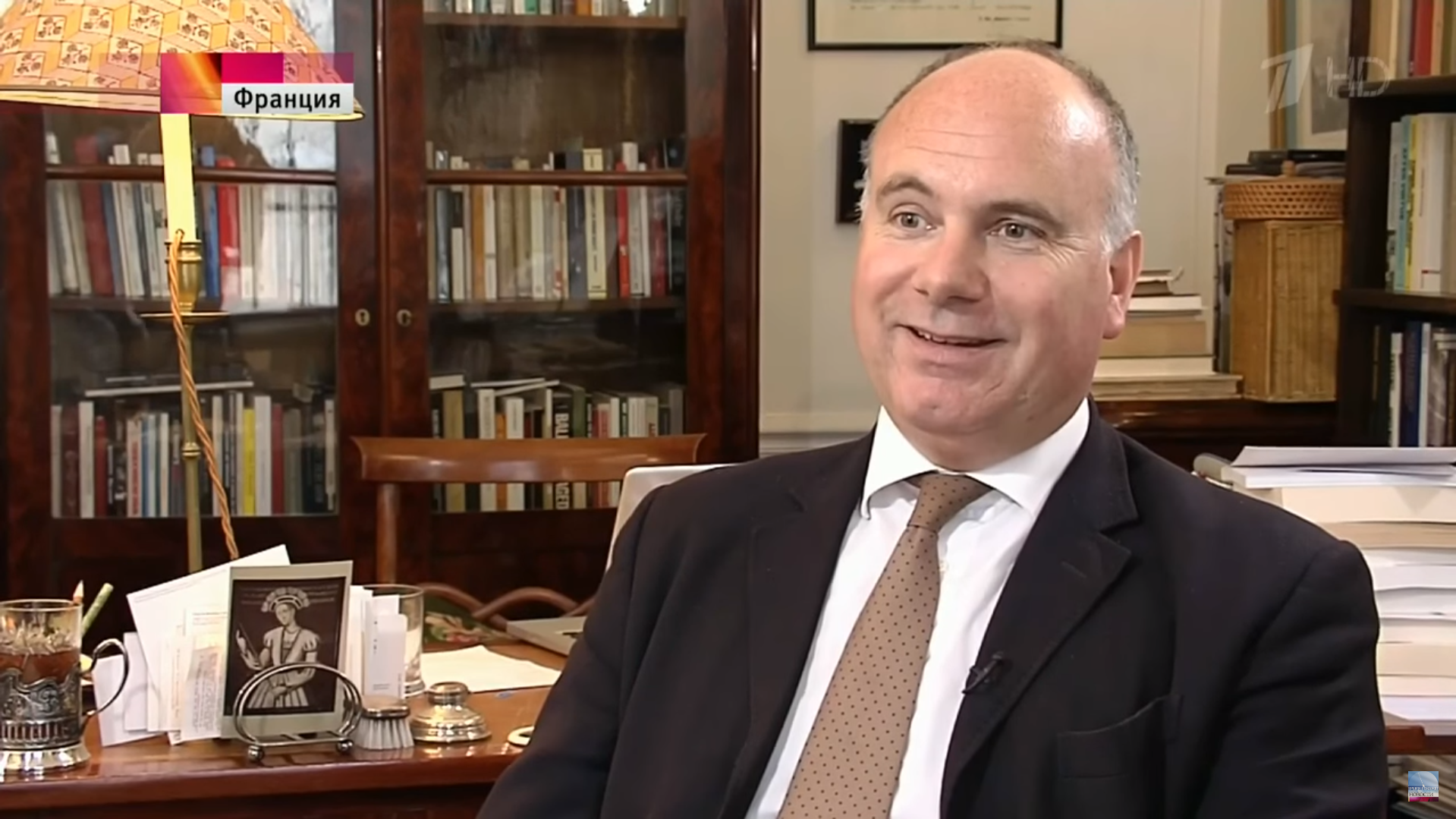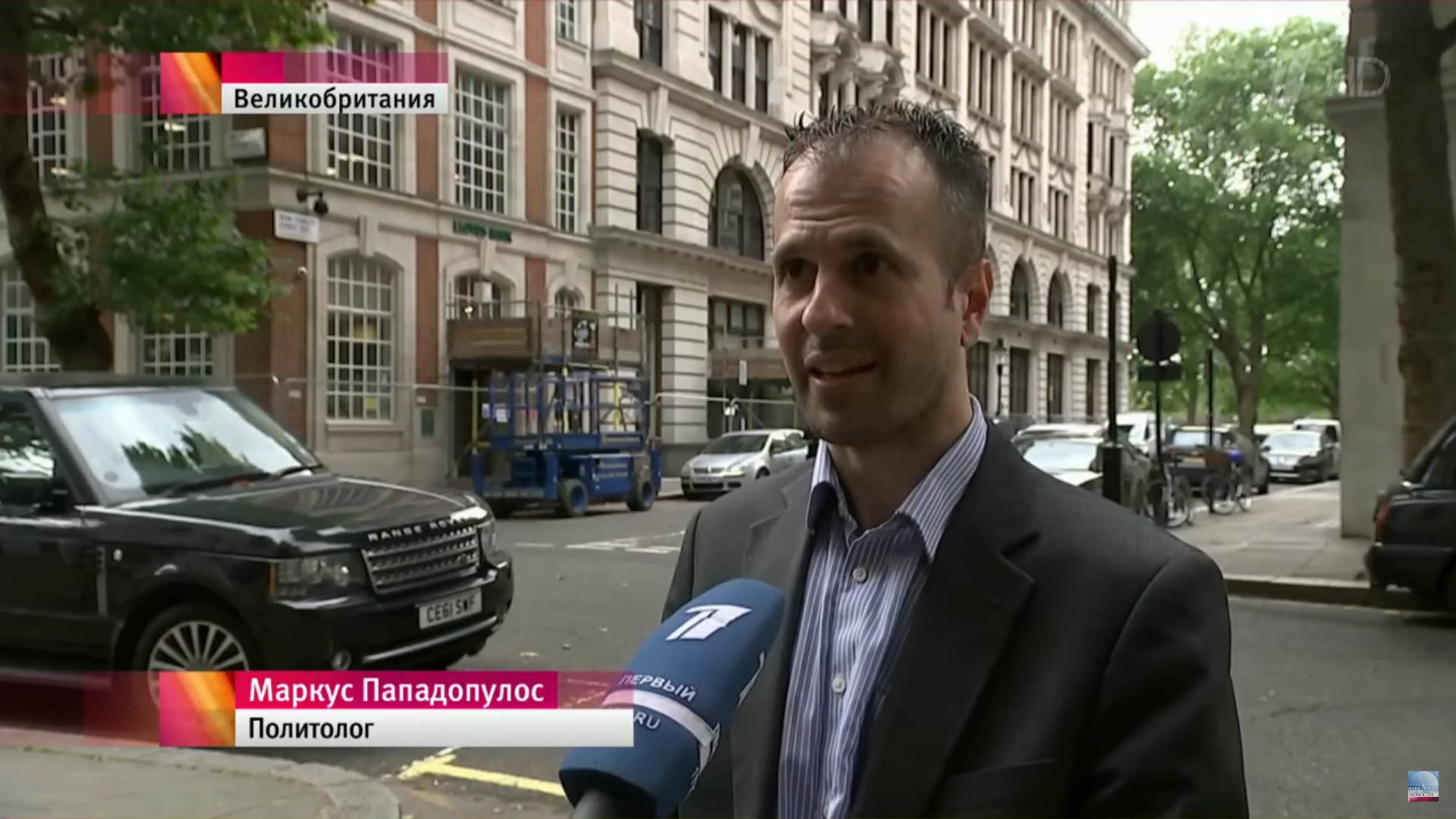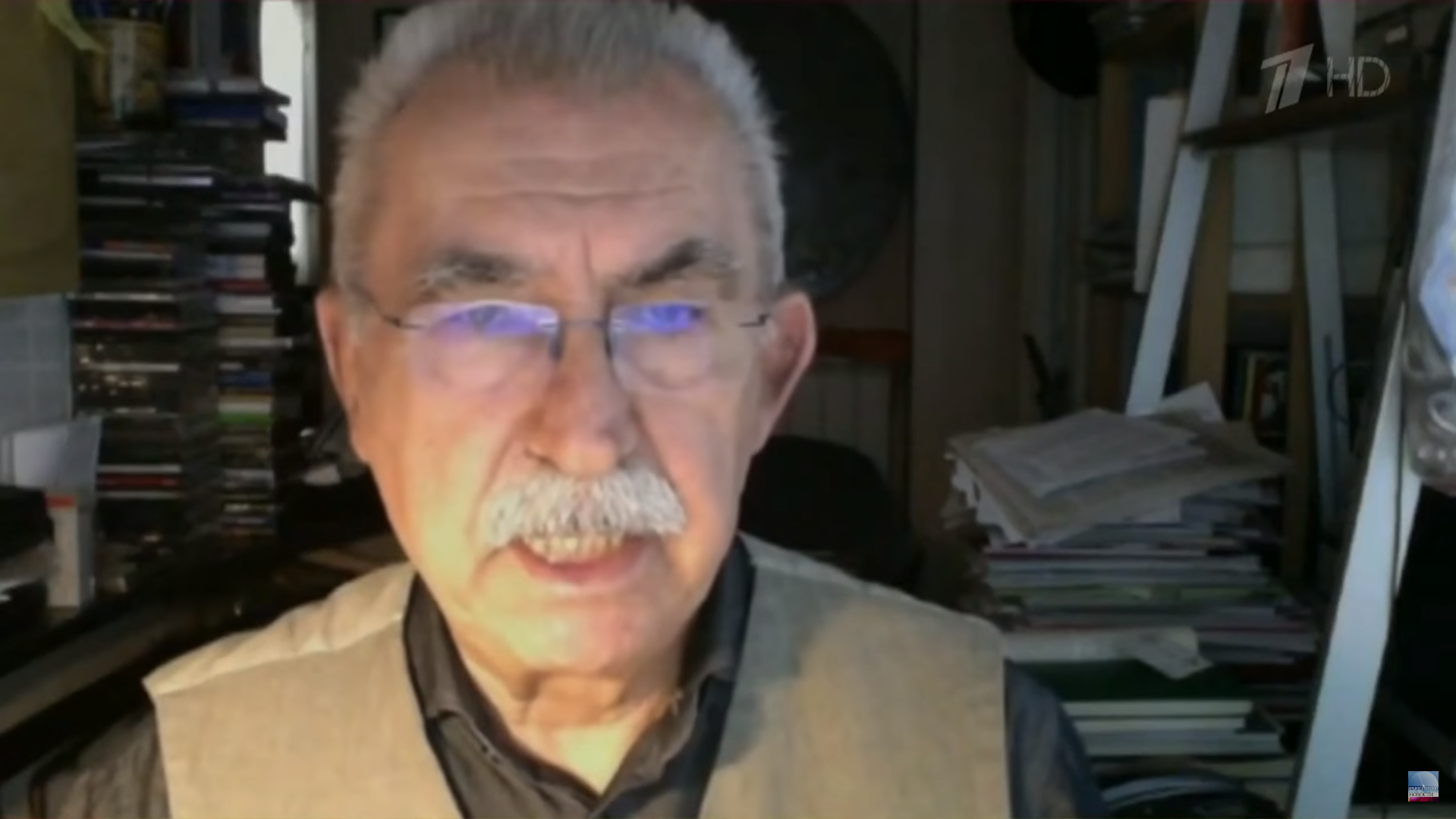Just two days ahead of Britain’s referendum on whether to leave the European Union, Russia’s state-owned Channel One ran what ostensibly appeared to be a news item on the vote. But cutting from the studio presenter before a backdrop of the UK and EU flags, the item opened with an aerial shot of police working at the site where Labour MP Jo Cox was murdered on June 16.
https://www.youtube.com/watch?v=hjNrTfshH5c
In the segment, correspondent Grigoriy Yemelyanov notes the media discussion of her killer Thomas Mair’s reported mental health issues and his links to the far-right, but then says that “discussing how this killing took place at a good time for the British government is quietly considered unseemly.”
Yemelyanov turns to right-wing British journalist John Laughland, who is director of studies at the Paris-based Institute of Democracy and Cooperation, headed by Russian nationalist Natalia Narochnitskaya, a former State Duma deputy.
Laughland, a longtime Eurosceptic and defender of any dictatorship to have fallen foul of the West, tells Channel One:
“The press have really been venting emotion, writing about how this is a terrible murder, how Jo Cox was a wonderful woman and so on. They are not making assumptions. Generally none at all. I remember that when a politician was shot dead on the street in Russia, in Britain everyone was shouting over each other that this was done on the orders of the authorities. But now no one is asking any questions. No one in the press has suggested that Cox’s murder could have been orchestrated.”

Yemelyanov notes that opinion polls were swinging towards leaving the EU in the days preceding the murder and claims that a victory for the Leave campaign would “anger” David Cameron’s “American patrons,” adding that Cameron is “a valuable agent of influence in the EU.”
According to Yemelyanov, Cox’s murder severely damaged the Leave campaign:
“It gave grounds to declare that campaigning on the issue of Brexit now offends the memory of the deceased. Everything is pitched in such a way that if you continue to campaign you will be characterized as an unfeeling monster.”
The problem here is that this is completely untrue. Both Remain and Leave campaigns halted rallies and press events on Friday and Saturday last week, but full-scale campaigning resumed on Sunday.
While Yemelyanov cherry picks several negative quotes about the polarized atmosphere and undercurrent of xenophobia in the UK, it can hardly be said, as he claims, that the Leave campaign is “demonized” in the British media when the BBC broadcast a nearly-two-hour-long debate between the two camps on Tuesday evening, with a live audience of 6,000, and several broadsheet and tabloid newspapers have nailed their colors to the Brexit mast.
But Marcus Papadopoulos, a regular face on Russian and Iranian state media outlets, suggests a nefarious conspiracy:
“Well I think some journalists are not saying this directly, of course, but they’re hinting that camp of EU supporters is using the killing of Jo Cox for their own aims. This is a very difficult subject, because they’re now afraid to say what can be summarized as: is there more to Jo Cox’s murder than we have been told?
“History teaches us that any tragic event can be used, may be subject to manipulation. And history shows that everything is possible, and that politicians, the government, the state – they’re capable of carrying out the most monstrous acts to achieve their goals.”

To provide further backup, Yemelyanov turns to Italy’s Giulietto Chiesa, a former member of the European Parliament and a vociferously pro-Russian conspiracy theorist.
Chiesa says:
“I remember September 11, 2001. 3,000 Americans were sacrificed. And one person. 3,000 innocent people died. I think that this is the very same. Those who want to retain power are prepared to do anything. One sacrifice – this is nothing for them, this means nothing to them.”

Yemelyanov concludes:
“Cui bono, asked the ancient Romans. Prime minister Cameron gains immeasurably more from the death of Jo Cox than the gardener Mair. And this is not conjecture or a groundless conspiracy theory. This is simply a statement of facts, that happen to coincide.”
The timing of such a broadcast cannot be ignored, given that Russia has certain interest in a result that damages the EU, but this message is starkly different from that presented on the Kremlin’s English-language outlets.
While RT have run an opinion piece suggesting that the government would try to take advantage of the killing, nothing akin to the Channel One report has been disseminated to Western audiences.
Instead, the aim here appears to be to reassure Russian viewers that Western governments who criticize Russia for suppressing dissent are actually just as bad, if not worse, at home.